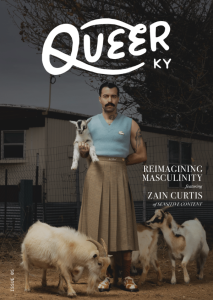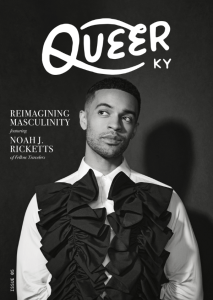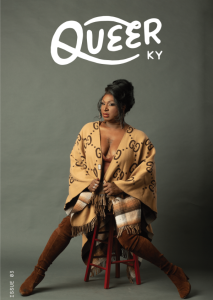University of Kentucky, Northern Kentucky University voluntarily dissolve DEI offices
“As a queer employee of UK, I feel they didn’t stand up for me… And if this is what standing up looks like, it’s dire in Kentucky.”
Senate Bill 6 and House Bill 9 were the two anti-DEI bills in the 2024 session. Both of them died in the legislature, despite Republican lawmakers’ bureaucratic efforts to pass a version of the bills in March.
Despite the bills failing, the University of Kentucky voluntarily dissolved its DEI office on August 20. As the flagship university in Kentucky, UK’s decision set a precedent for other universities in Kentucky to follow suit. Shortly after UK made this decision, Northern Kentucky University followed by disbanding its Office of Institutional Equity.
With lawmakers backing bills targeting DEI efforts across Kentucky and the United States, controversy around diversity, equity, and inclusion has been politically stirred. Both UK and NKU’s commentary nodded to the legislative push to ban DEI, implying these moves to dissolve DEI offices were made to get ahead of possible attacks to DEI in Kentucky’s 2025 legislative session.
Queer Kentucky spoke with concerned students and faculty at University of Kentucky and Northern Kentucky University. Each person interviewed is speaking from their personal, individualized viewpoint and is not representative of the institutions or organizations they are tied to.
Dan Moon is a part of United Campus Workers of Kentucky and is on UK’s campus organizing committee. She went to UK for undergrad where she was affiliated with LGBTQ+ student affairs and worked in the office of LGBTQ+ Resources. She is now a staff worker at UK.
Moon notes that the reaction across campus has been “emotional,” especially with the timing and delivery of the news. Emails reached students after they had already moved in on campus, but before classes had begun.
Moon says there is “widespread fear” about an oncoming curriculum change with “how big of a priority attacking DEI was in the legislative session.” For Moon, this felt “like a surrender to the GOP supermajority.”
She expresses concern for marginalized students’ safety on campus, noting the viral assault where Sophia Rosing, a 22 year-old white student, “repeatedly hurled a racial slur at a Black student,” according to a university police report.
Moon says she understands that UK is publicly funded and in a similar, tight spot to “other institutions in red states where people are targeting DEI.” But, she feels making these moves before any bills were passed is “preemptive” and that has caused “emotional turmoil on campus.”
“As a queer employee of UK, I feel they didn’t stand up for me… And if this is what standing up looks like, it’s dire in Kentucky,” Moon says.
This decision with DEI rolled out after the University of Kentucky’s University Senate approved a resolution of no confidence against President Eli Capulouto in May. This came after his proposal to strip faculty of power over academic decisions at the university.
As a campus organizer, Moon says, “This is why we organize at UK and across Kentucky.” She says the union fights for the students, staff, and faculty to have decision making power about what affects them – not just administration.
Anaya Ali is a junior at UK and a dual degree candidate. She is involved with the Student Government Association as the UK Martin-Gatton College of Agriculture, Food and Environment Senator, among many other student organizations.
Ali is Muslim, and in one meeting with President Capilouto, she shared her experience with a professor not accommodating her for a religious holiday, Eid. In senate codes and KRS, students are only allowed to request one day off.
But, the Islamic calendar follows the twelve month lunar calendar, so the dates of both Eids change each year. When Ali requested two days off to accommodate, her professor emailed her back that she “cannot make up new holidays” and said she would “take off points” if she took two days.
Ali says President Capilouto empathized and said this was “obviously something the DEI office would work on.”
That conversation was over the summer. Now, less than a few weeks ago, she got an email that all DEI programs were cut.
As an executive peer mentor for the College of Agriculture LLP, Ali no longer has to go through certain DEI training anymore. She notes concern for those who might need that exposure and opportunity for growth in order to be in a leadership position.
Mandatory diversity training will be removed across the university, and employees no longer have to write a diversity statement to be employed at UK.
Ali feels DEI levels the playing field and allows for opportunity for marginalized folks.
“I grew up in rural eastern Kentucky, and I’m passionate about rural healthcare and getting a CLD degree. There’s not a lot of people from Appalachia who look like me, and it’s so important we give people like me a platform because we can all learn from each other’s experiences,” says Anaya Ali.
While Senate Bill 6 and House Bill 9 were still in session, the Herald-Leader published a story centering Black students’ experiences at UK.
While many had positive experiences, several students noted the “importance of organizations at UK, specifically the Martin Luther King Center, which works with students from all backgrounds and hosts events centered around cultural awareness, leadership, and community.”
As well, several students shared that “scholarships for minority students” made going to UK “an easier choice.” Nearly 17% of students enrolled in 2023 were from underrepresented populations according to the university. This was the largest-ever year for enrollment at UK, and also the most diverse ever.
With diversity scholarships helping to close the gap for individuals from marginalized groups and diversity programming fostering student belonging and culture, DEI programs can be tied to recruiting and supporting a diverse student body.
A week after the University of Kentucky’s decision, Northern Kentucky University followed by dissolving its Office of Inclusive Excellence. This came after Chief Diversity Officer Dr. Darryl Peal made the decision to step down.
President Cady Short-Thomspon announced this in a university-wide email. Alluding to possible forthcoming anti-DEI legislation, Short-Thompson wrote, “The circumstances under which universities across the commonwealth and the country find themselves, coupled with the legislative priorities of state leaders for the upcoming session, requires universities to change.”
James Renton, a senior at NKU, is involved with the Center for Student Inclusiveness (CSI) and is the former president of an LGBTQ+ organization on campus.
Renton says there was “a lot of chaos and confusion, especially for affinity groups with the Center for Student Inclusiveness.” Despite the CSI clarifying that they are still operating, Renton worries about the future for any department or organization that could be possibly classified as diversity, equity, or inclusion centered.
Like UK, NKU administration has insisted it is still upholding its mission to lift up students. Like students and faculty at UK, Renton says they worry about the “morale of the student body.”
Renton says, “We cannot bow down to radical ideologies of how we should live our lives… If they’ve rolled over and done this, who’s to say it will stop there?”
As a response to the anti-DEI bills in Kentucky’s 2024 legislative session, Nino Owens wrote an opinion piece for the Herald-Leader titled, “I’m a senior at U of L. Kentucky’s anti-DEI bills would hurt Black students like me.”
He writes about how the “robust presence of Black students” at the University of Louisville is not random, but due to “purposeful policies that seek to address a history of racism.”
Those purposeful policies include scholarships seeking to close the gap for marginalized students. Owens was a Martin Luther King and Woodford R. Porter Scholar, both scholarships for high-achieving Black and Black/Latinx students.
Owens writes, “I’m a first-generation college student, like most Black students are, who would’ve gotten lost in the bureaucracy and isolation of college long ago without the support given by the people who operate these programs.”
In a statement to Queer Kentucky, Owens shares his thoughts on UK and NKU’s decisions to dissolve their DEI offices. He feels university administration is “prematurely bowing to legislative pressure to end DEI programs.”
“Unfortunately, they are betraying history and truth by relenting to those who believe historical truth exists in a vacuum that doesn’t affect the current conditions people face. Their capitulation removes the only institutional shield of protection from historically oppressed students and paves the way for further legislative restriction,” Owens says.
On September 17, the University of Louisville president and other public Kentucky university presidents testified at the Interim Joint Committee on Education regarding diversity, equity, and inclusion in postsecondary institutions.
In July, Morehead State University and Northern Kentucky University made their presentations.
Ryan Quarles, the president of Kentucky’s Community and Technical College System (KCTCS) and former Republican lawmaker and two-term agricultural commissioner, will be making his presentation in November.
KCTCS has sixteen colleges across the state and serves more than 100,000 students. KCTCS said in a statement on September 13 that they will begin reviewing that “all programs, offices and goals align with our commitment to success for all students.”





 @hillbillycurator What do you g
@hillbillycurator What do you g

















